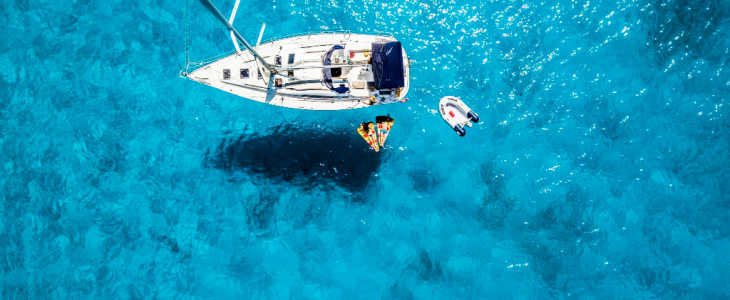
Given the current COVID19 pandemic, countries, businesses, and people have temporarily taken a halt from their respective activities. With the health and safety protocols imposed to contain the spread of the coronavirus, boaters are also expected to follow COIVD-19 restrictions and CDC guidelines for maritime pilots.
This is not what you expected to learn when you got your Florida boating license but here we are, so in order to stay informed and so avoid boating accidents and other faux pas on the open seas, we spoke to our Florida boating accident injury lawyers and asked them to discuss the latest Coronavirus boating regulations in Florida.
An Overview on COVID-19 Related Maritime Restrictions
 Coronavirus boating regulations in Florida have been outlined by the current state governing bodies and explained here. While the coronavirus is still very much around, states have eased the restrictions, and regulations are in place when it comes to recreations and outdoor activities like boating.
Coronavirus boating regulations in Florida have been outlined by the current state governing bodies and explained here. While the coronavirus is still very much around, states have eased the restrictions, and regulations are in place when it comes to recreations and outdoor activities like boating.
The COVID-19 boating safety regulations are implemented to keep the community safe; prevent the spread of the virus at the same time for people to be able to enjoy a time out on the water with family or friends.
The following information that you can use as a reference to make sure you are within the limits set by the State of Florida and how you can savor the warmth of the sun on your skin, the wind blowing through your hair, or watch as the sun sets in the west without compromising your health and safety.
General Coronavirus Guidelines
These safety protocols are imposed by the Florida Fish and Wildlife Commission where officers are out in boating access areas and on the water to make sure that boaters are adhering to these guidelines.
For safety boating, the government requires and mandates that all offshore gatherings are limited to at most10 heads. Additionally, the Florida government is asking for skippers, captains, crew, and passengers to follow these guidelines:
- Maintain a physical distance of at least 6 feet from each other while at marinas or boat ramps
- Avoid sharing of food and drinks
- The only boat with family members of the same household
- Always sanitize hands after fueling the boat
- Self-isolate when experiencing COVID-like symptoms
These Coronavirus boating regulations in Florida have been put into place with the hope that they might help prevent another spike of some kind as we approach the coming summer months. Governor Ron DeSantis has still pushed out vaccines which may in fact relax some Coronavirus boating regulations in Florida in the future, but that is pure speculation at this point and we cannot be sure.
Accepted Boating Activities and Businesses
For the most part, it has been business as usual in most parts of Florida. Although some Coronavirus boating regulations in Florida have forced maritime businesses to adjust to the latest rules and restrictions, there have not been many instances of complete shutdowns as time moves on.
These maritime businesses and activities remain open with some restrictions:
- Jet ski (limited to 2 riders only of the same household)
- Boating (must maintain 50 feet distance from each other; boats, kayaks, canoes)
- Cruising and fishing (if proper social distancing are observed)
- Marinas
- Boat ramps
- Dockside restaurants
Boat sales are increasing in Florida, even to the point that there are supply and demand issues. Even just looking at some of the biggest yacht sellers in Florida and you can see just how many boats are going on sale. It’s astounding. So it’s safe to say that these Coronavirus boating regulations have not slowed down the maritime industry in Florida.
A Complete List of All Coronavirus Boating Regulations in Florida
- Boatmen including captain and crew of chartered vessels must wear masks and observe the recommended social distancing while onboard and onshore
- Non-fishing vessels like tour boats shall operate but are only allowed to accommodate 50% of the boat capacity
- Boats 25 feet or less are only allowed a maximum of 8 passengers on the boat; a maximum of 4 adults and children (17 years and under).
- 25 feet to 36 feet; maximum of 10 on the boat; max of 6 adults, plus children
- 36 feet or greater; maximum of 10 on the boat; maximum of 8 adults, plus children, or 50% of the boat capacity
- No rental of fishing rods and tackles allowed
- People on the boat must have access to clean water, soap, and sanitizer
- Cleanliness guidelines must be posted on the vessels’ restrooms
- Restrooms must be cleaned, sanitized, or disinfected hourly
- Boat ramps are open only from 6 AM to 10 PM daily
- Only one boat per launch ramp is allowed at a time
- Maintain 10 feet social distancing between fishermen must be followed at piers
- Limit the number of persons per fish cleaning station to one to ensure social distancing is practiced all the time
If you are involved in a boating accident, or your vessel is damaged in any way, and you require legal assistance, call our team of personal injury and property damage legal experts (800) 560-5059.
Sources:
- Coronavirus (COVID-19)
- State Boating Regulations & Safety During COVID-19
- Why and How to Boat Safely in Southwest Florida During Covid-19
- Boat sales are up, but supply-chain issues means buyers may have to wait for delivery
- Surge in demand for pleasure boating amid pandemic has Minnesota builders busy
